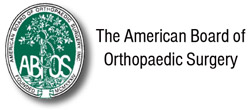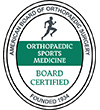While the faces of orthopedic providers now more closely reflect the diverse patient populations they serve, continued efforts must be made to realize the potential benefit afforded by such diversity of perspective. Sexual harassment, as with all forms of harassment, undermines any prospect of creating a work environment of mutual respect, where all persons can share their unique talents to accomplish our mission of excellent patient care. Communication is central in preventing sexual harassment and, should an incident occur, it should be promptly investigated. Departments and practices should establish an explicit code of conduct and policies related to a harassment-free workplace and non-retaliatory reporting. It is essential to set departmental and organizational expectations about zero tolerance. Of equal or perhaps greater importance, a culture of inclusion and professionalism must be cultivated, starting from the top. Leaders and those in positions of responsibility must be champions of respect, serving as conscientious exemplars and demanding that other team members adhere to such a code of conduct. There can be no double standard for high-performing physicians; to the contrary, those in positions of power must be particularly cognizant of how those without such influence may be reluctant to voice grievances or suggestions. In Pittsburgh, and in the spirit of Mr. Rogers, we strive to be good neighbors. Our (orthopedic) neighborhood will only thrive if each of us feels respected and encouraged to share the best of what we each possess.
Source: Healio





